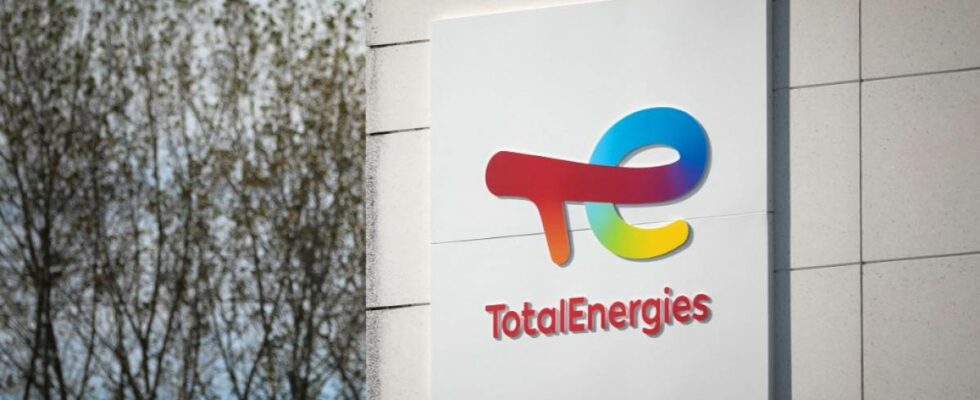(AFP / LOU BENOIST)
TotalEnergies is developing an activity of installing solar panels for the benefit of companies wishing to decarbonize or access an independent electricity supply, and intends to achieve “8 or 9 GW” of electricity purchase contracts sold in this form of by 2030, the oil group said on Sunday.
With 600 self-consumption customers installed on 700 sites around the world, TotalEnergies “currently exceeds 1.5 gigawatts” of power purchase agreements (PPAs) signed worldwide by companies wishing to install solar panels on their roofs , parking lot shades or on vacant industrial land, indicated Mathieu Langeron, director of renewable production for the group during a presentation to the press.
To date, 60% of TotalEnergies’ renewable electricity production activity on industrial sites is carried out in Asia, 10% in the Middle East and Africa, 15% in Europe and 15% in the United States, a- he clarified.
The activity is only five years old, the group is its own customer, particularly in France with some 160 megawatts of photovoltaic panels installed on its own sites. It is now targeting development in Europe and the United States, said Mr. Langeron.
To date, the customers are the automobile industry wishing to produce green electricity to decarbonize its industrial sites, the food industry and textiles.
The oil group also won a contract with the cement manufacturer Holcim in Belgium for the construction of a floating solar power plant, with Veolia in Oman to power the Sharqiyah desalination plant, and in Indonesia for the construction of a solar roof intended to supply a steel factory.
In general, these are mainly “modest-sized” contracts of 2 megawatts on average which make it possible to ensure around “20% of the electricity consumption” of client companies, underlines Mr. Langeron.
In addition to limiting the carbon footprint of industrial customers, the contracts allow them to smooth their consumption and avoid paying too much for their electricity supply during peaks in demand by offering them “a predictable price”. The group sells renewable electricity produced on their sites to its customers via long-term Power Purchase Agreement (PPA) contracts.
